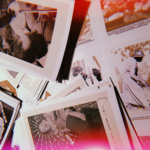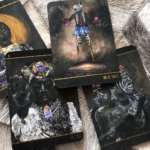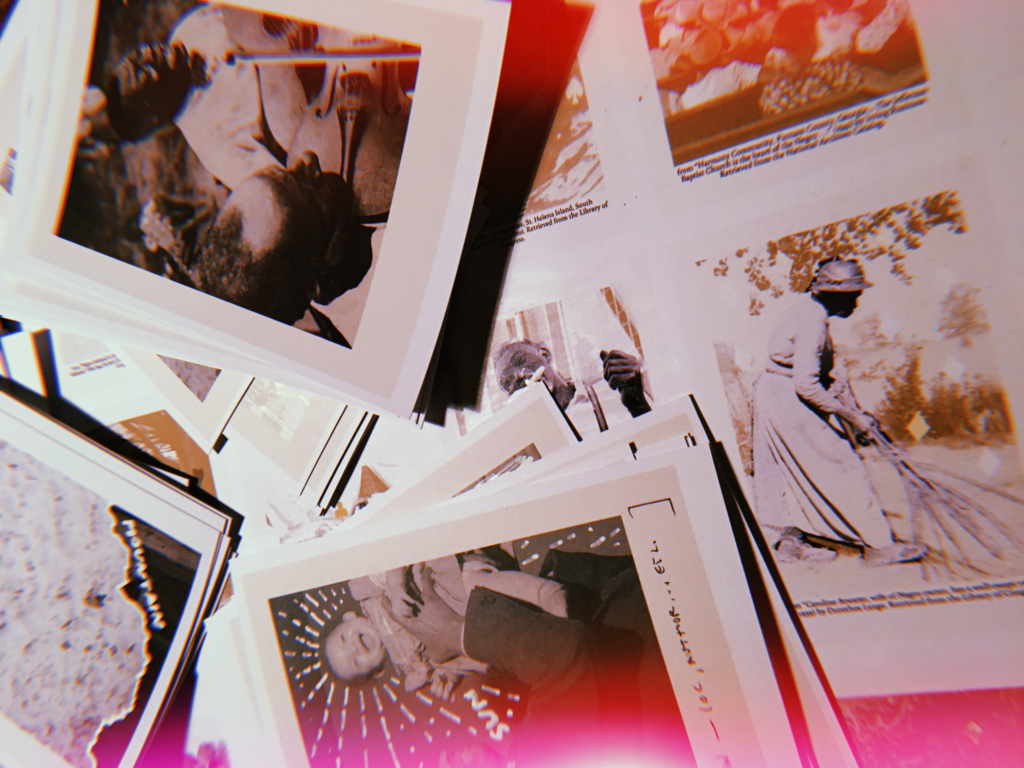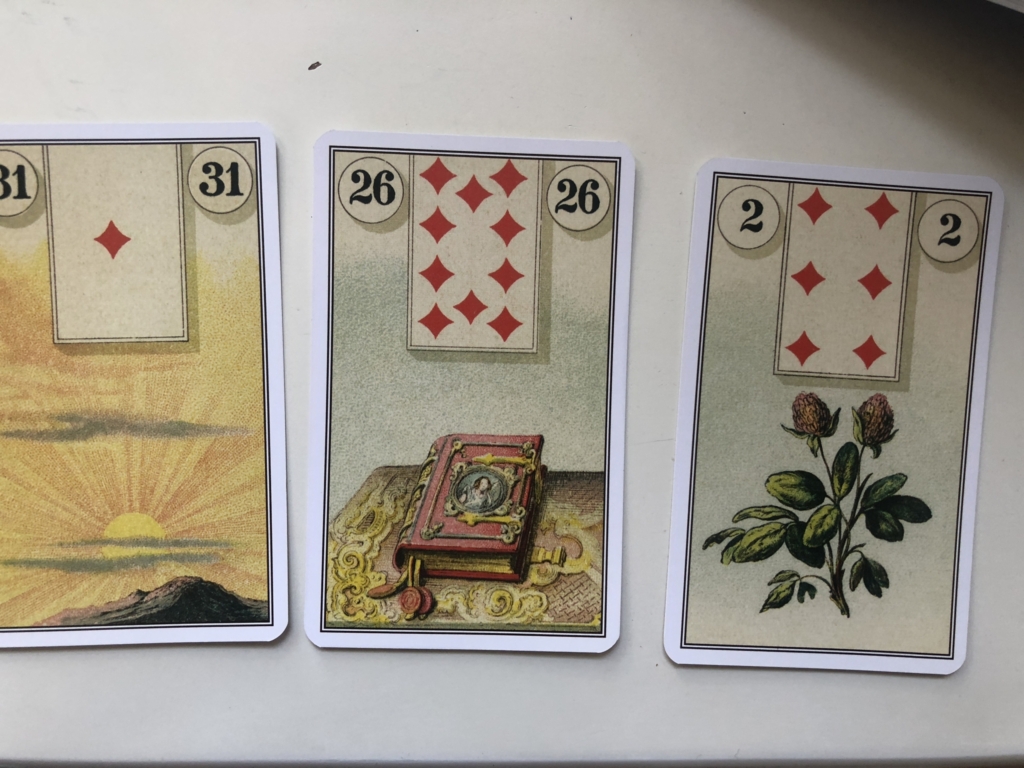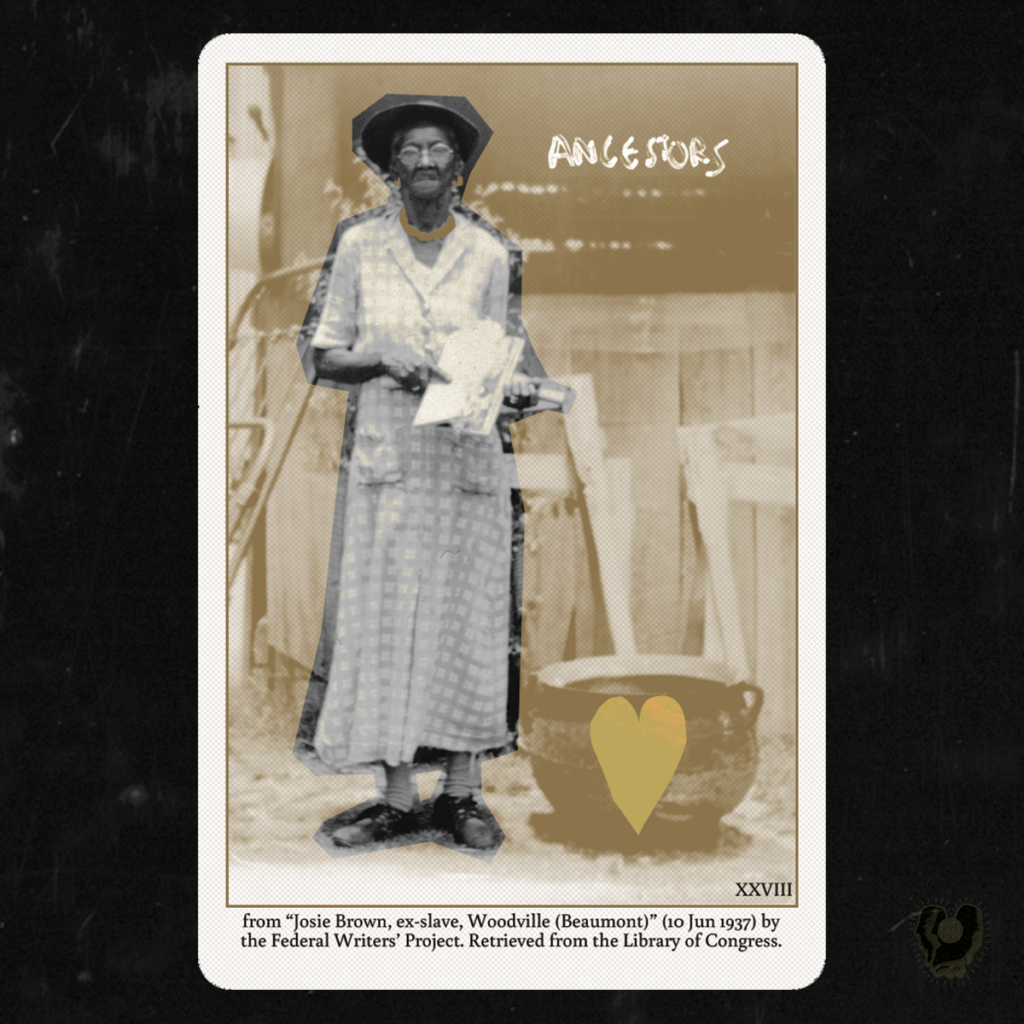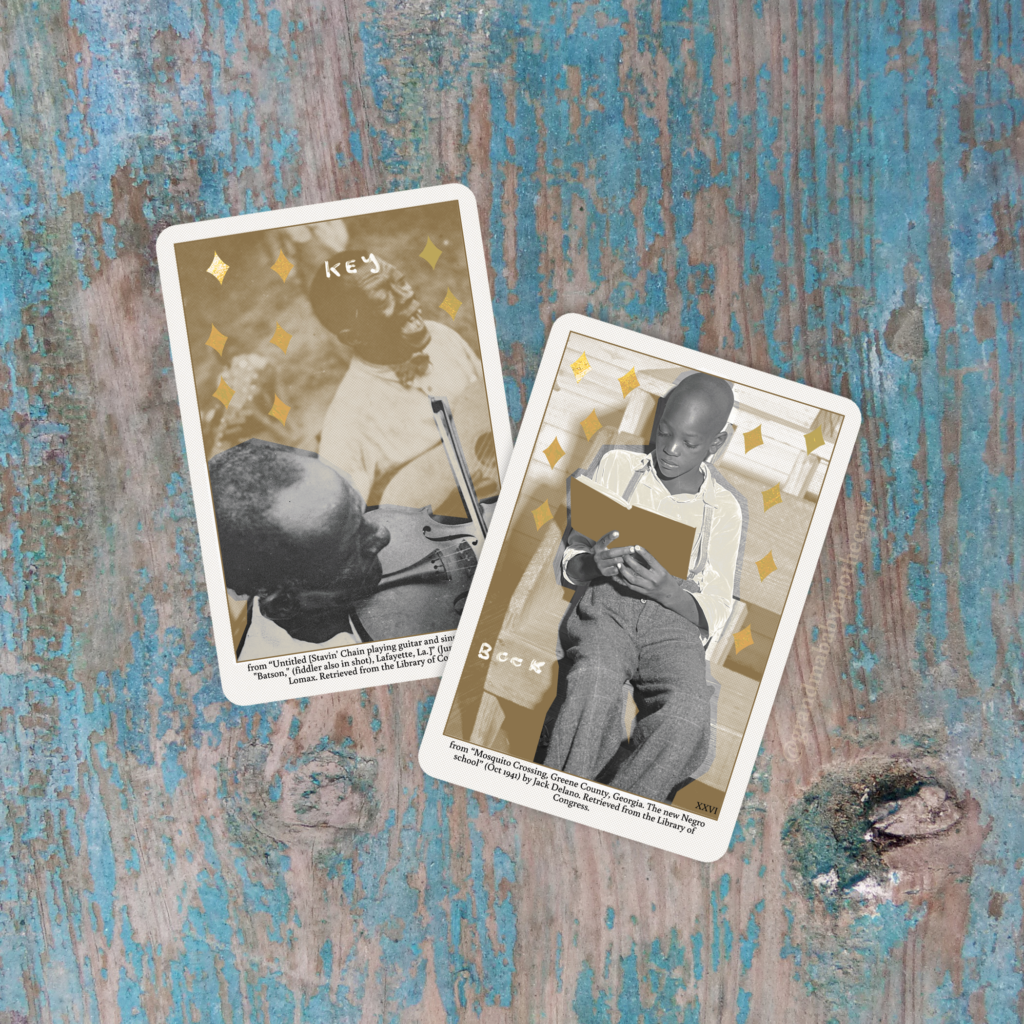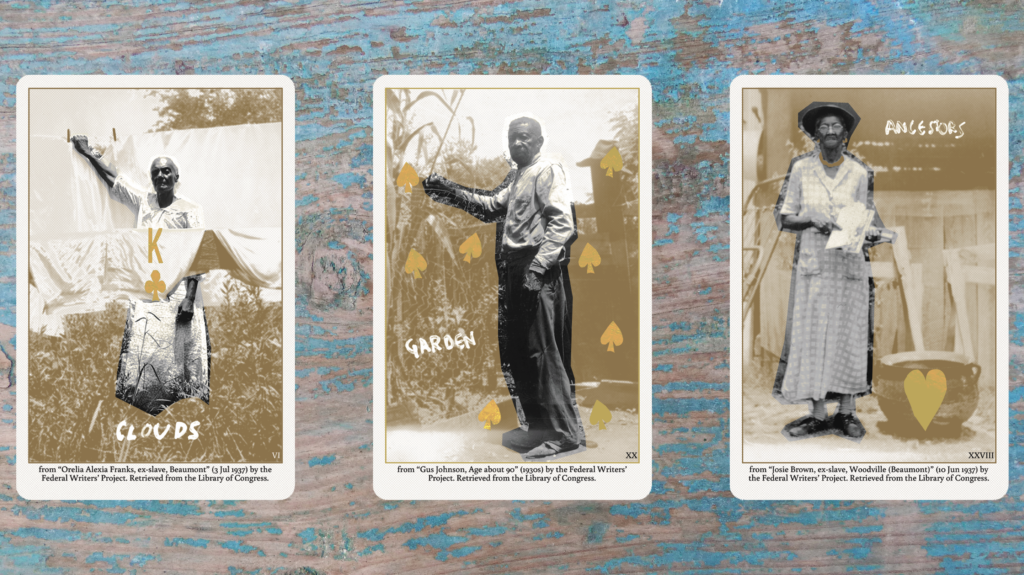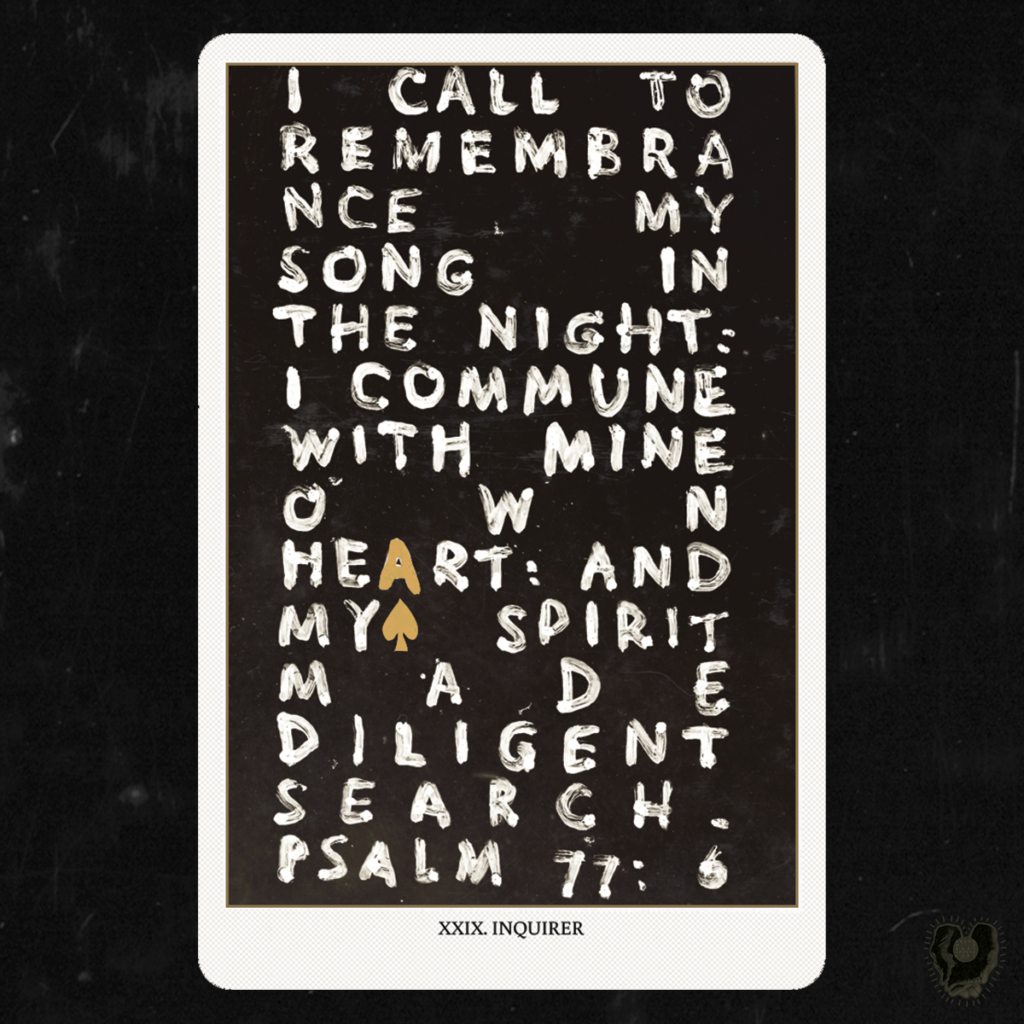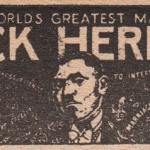Today I gave an elevator pitch to a prominent women’s entrepreneurship program about why my product, a deck of cards that align specifically with the spiritual practices of Black American folks, is something we all need. It had to be a 1-minute pitch, but I had several pages of notes and, honestly, I could have given them hours.
The basic version: Inclusivity and representation are nowhere near enough; we must be centered in our own spiritual and mindfulness practices. The radical version: I want to make spiritual tools that help us to remember where we come from, and how divinity is inherent to Black people.
Always was and always will be. And I say “remember” because our Indigenous traditions haven’t actually been lost, and that’s more than evidenced by how often they reappear uncredited and whitewashed in the witchy and wellness industries, sold back to us by non-Black folks at slap-your-mama prices.
I wanted to show them the road I took to get here. How I’ve been digging backwards for my roots to better inform the shape in which I’ll grow forward. About all the hits and misses, the spiritual and emotional revelations, and the community I’ve found while navigating my journey home to myself.
Somewhere in my early twenties, I began doing research on folks still practicing African American Indigenous religions here in the States. I remember how much began to resonate with me immediately about these old spiritual systems, which are so deeply ingrained in Black culture that many of us miss them hiding in plain sight.
Hoppin’ John and cabbage to ring in the new year, the stories of conjure doctors and trickster spirits told to me as a child that in turn enchanted me and frightened me into behaving. Through uncovering the evidence of a resilient ancestral connection, I began seeing myself more clearly.
But with each step forward I would also find myself jerked another ten steps back. I remember someone in a spiritual Facebook group recommending the products of a Black-owned Hoodoo shop online. There I found a listing for a “La Madama” statue.
The item’s description was actually a story of enslaved mothers assembling La Madama dolls from fabric scraps created in their own likeness so that if their children were separated from them the doll functioned as a conduit to remember them by, to watch over and guard these children from harm.
I had grown up with a little cloth doll I’d instinctively gone looking for again as an adult during some of the most troubled years of my life. I connected to this story immediately and purchased the statue without any hesitation. But before it could arrive I found myself doing a double-take at the image of the woman who owned the shop. I knew her appearance didn’t invalidate her Blackness or Black ancestors, but I couldn’t shake this itch…
Some internet digging revealed she wasn’t Black at all. A white woman was waxing poetic on the forced separation of Black families and trafficked children conducted by her own ancestors. She was benefiting from a craft that had been beaten out of and stolen from my people by hers. Selling a statue that, as she wrote, contained the spirit of Black mothers.
A white woman selling Black maternal spirits back to their stolen Black descendants? The mechanisms of that racial power dynamic hit me squarely in the lungs. The pain was incredibly deep. It wasn’t just my pain. When the package arrived I walked it from my doorstep to the trash bins behind my building, unopened and unclaimed. It was actually my Korean roommate who casually mentioned she’d been using a Black-made Cleo May oil, and put me on to Memphis Conjure, my first ever real Hoodoo purchase.
It shouldn’t be this hard for us to access what our ancestors created for us –– for our protection in chaotic and dangerous times where our spiritual tools and spirits are essential for our continued survival. We shouldn’t be paying for ancestral healing from the same folks who instigated (and often still perpetuate) so much of the harm.
From Black bodies to box braids, our legacy ripped from our ancestors’ hands and replanted into non-Black wallets. As JuJu Bae, a well known Black spiritual practitioner demanded at the start of the summer: Give. Us. Our. Things. And as Hoodoo Queen Co. Meadows demanded at the start of October, Hoodoo Heritage month: It’s time for Black Americans to reclaim our things. For anyone looking for authentic Black sources for roots, history and workings––here’s a start.
– Tea, Co-Owner, Grandma Baby Apothecary
1. The Hoodoo Society –– A collection of resources thoughtfully and lovingly curated for and by Black American descendants of enslaved Africans, including the actual definition of Hoodoo.
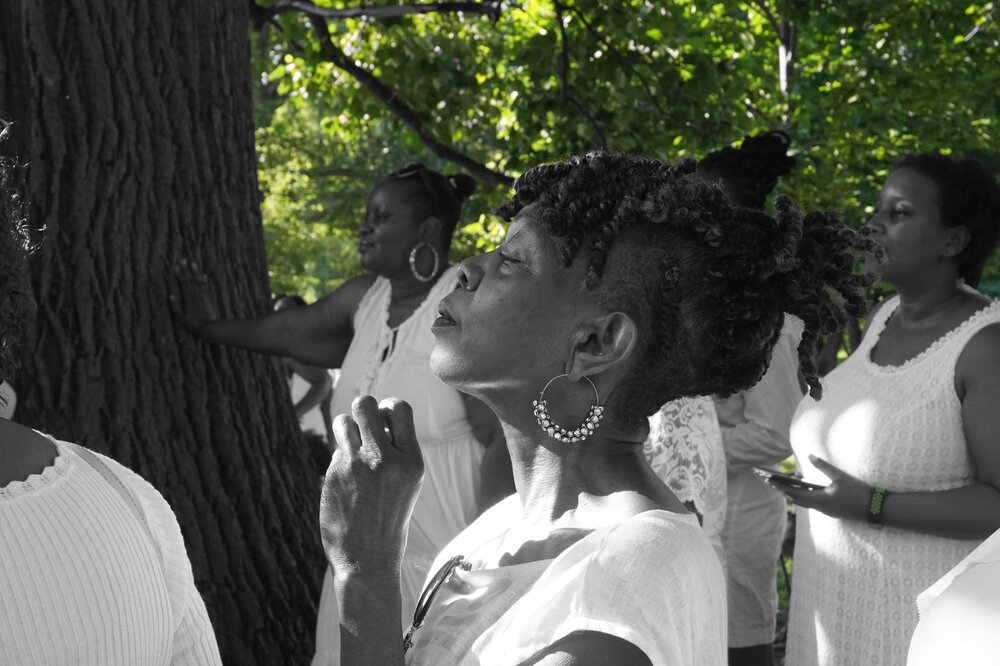
2. Memphis Conjure Supply –– African American Southern Hoodoo Shop for over 30+yrs, family practiced for 110 years, with known lineage of Delta Hoodoo. Their family has even earned a mention in Tony Kail’s latest book “Stories of Rootworkers & Hoodoo in the Mid-South” (pg 101).
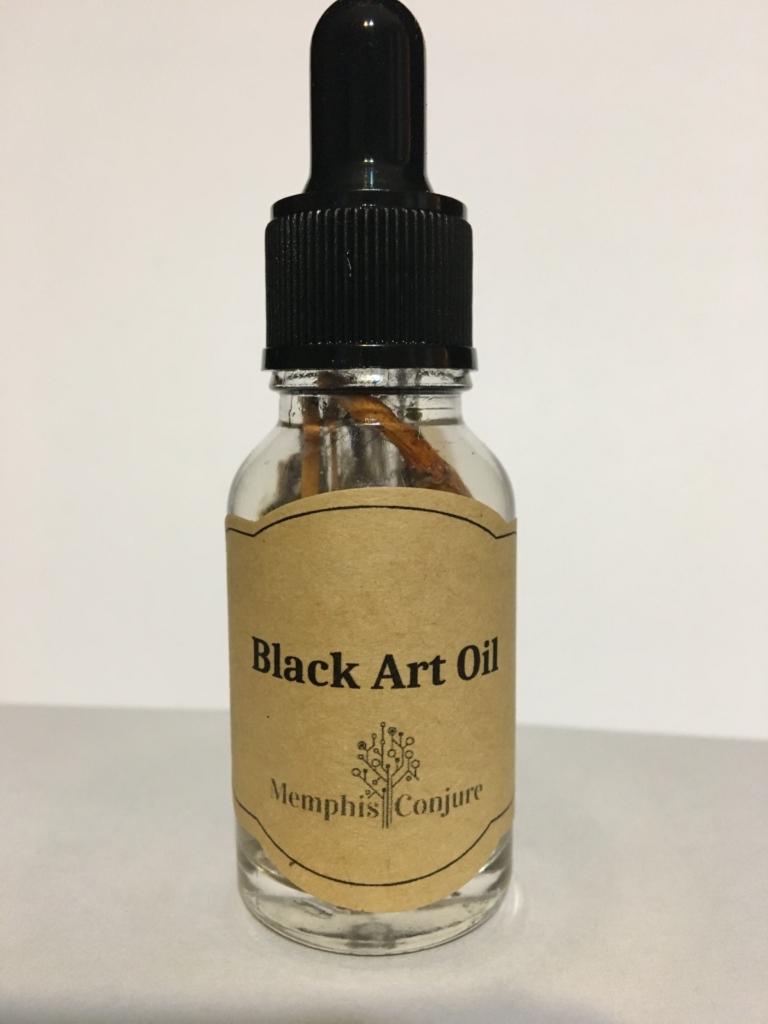
3. Conjure South –– Founded by Queen Co. Meadows, Spiritual Royalty and Reigning Queen of the Milner-Meadows Des La Pound lineage of traditional spiritual workers that date back for over two centuries in the United States. Based in Mobile, AL, Queen Co. Meadows is a traditional spiritual worker providing a line of traditional Hoodoo, Obeah and Gris-gris products including Conjure South Publications, which is the world’s first African American Traditional Spiritual and Metaphysical Publication company. You’ll find all things Conjure South and The Hoodoo Queen™ by visiting ConjureSouth.com or follow Queen Co. on Instagram or her Youtube Channel where you will find free weekly readings and spell work.
4. The AfroMystic –– N’ganga Makhosi Chimurenga ChaNjuzu aka The AfroMystic is a traditional Black Belt Rootworker, Astrologer, Diviner and Certified Clinical Hypnotherapist out of Los Angeles, CA. Born into a family of Mississippi and South Carolina Natives, she received the underground teachings of what we now call Hoodoo, an Afro-diasporic spiritual system created, cultivated, and maintained by kidnapped African people during the transatlantic slave trade. Through her work at The AfroMystic, she utilizes the African practices of ritual work, Ancestor veneration, divination, astrology, hypnotherapy and herbal medicine to help Black people reclaim our rightful roles, destinies, and spaces under the sun.
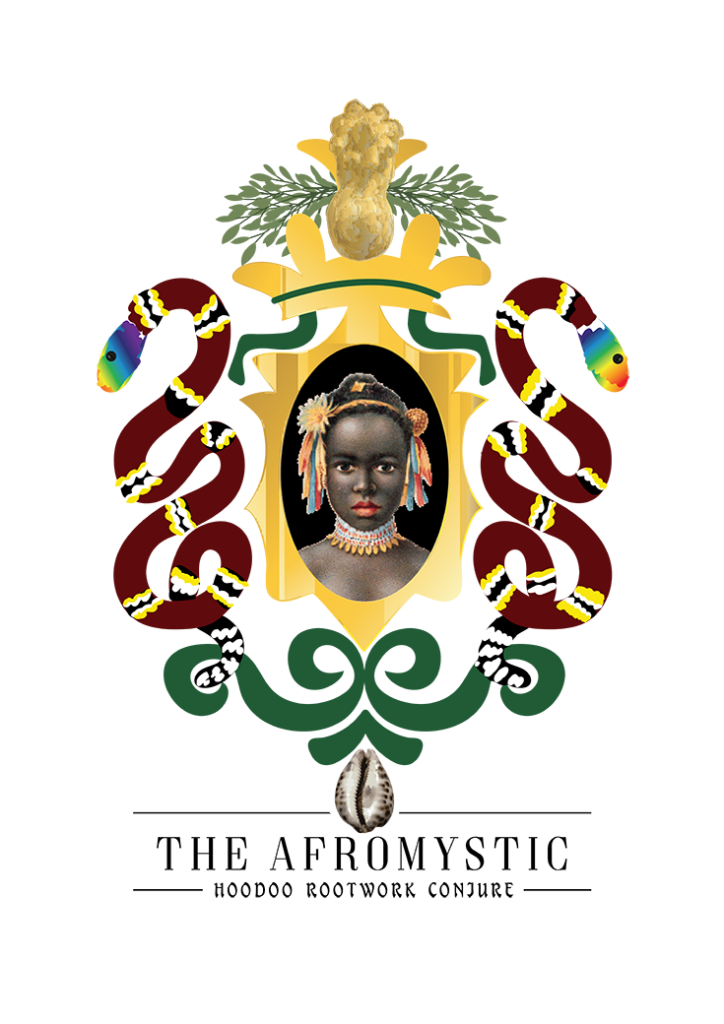
5. Big Liz Conjure/Erzulie’s Conjure Garden –– Our goal is to give back to members of the community by creating programs to educate our customers about the magical practices and religions of the African Diaspora, and other occult traditions, by selling high-quality spiritual supplies, and hosting community events that foster understanding of our complex spiritual beliefs.
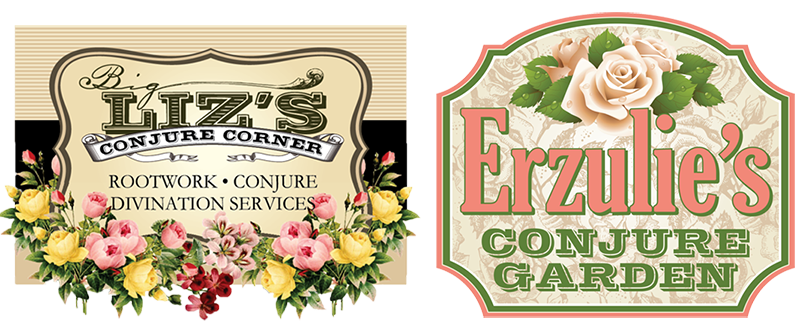
6. The Conjure Cleaner –– James E. Stewart was born and raised in Durham, North Carolina. He is a Hoodoo practitioner and Rootworker with 10+ years experience. He is the owner and operator of Conjure Cleaning: a spiritual home cleansing company that also sells spiritual products via his Etsy store. You can find more about him at www.conjurecleaning.com and his Instagram.
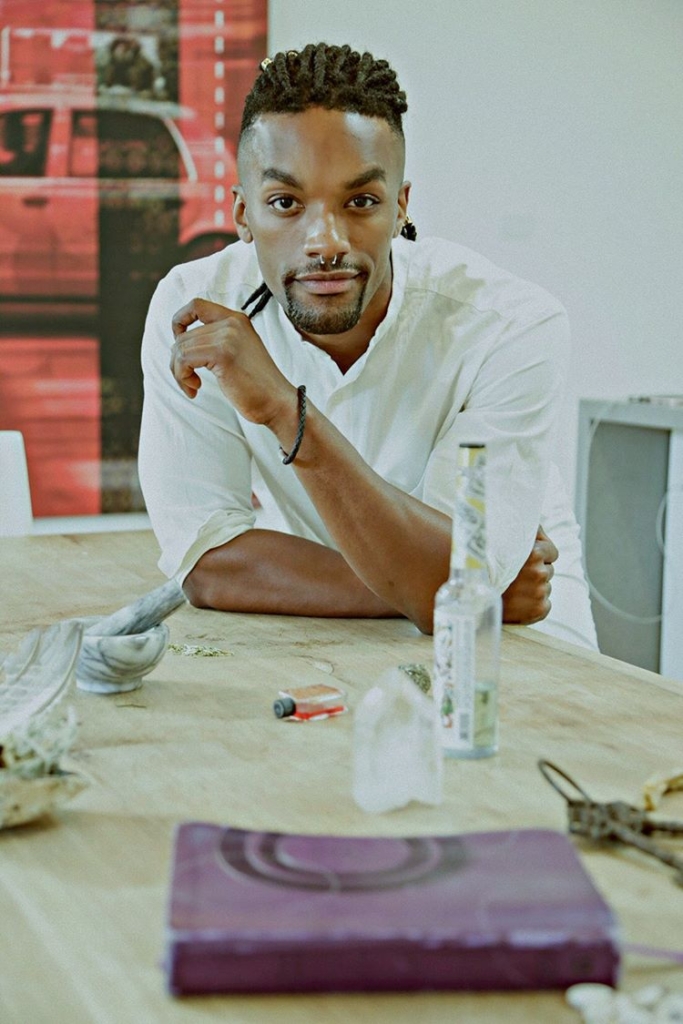
7. Coil and Bloom Conjure –– Coil and bloom conjure is a Black LGBTQ owned conjure shop, dedicated to serving and healing our communities. They offer a range of services and products from readings, consultations, condition oils, and etc.

8. Gold Water Alchemy –– Gold Water Alchemy is a multilayered, multidimensional catalog of work created and carried forth by Elsie Lopez –– a rootworker, educator, and artist. Through it, they have created Gold Water Educational Center to help educate people on holistic living, wilderness skills, and ancestral practices, amongst other things. Currently, the focus is on expanding a project called “The Indigo Keys and the Spiral Portal” — a body of work which includes plant medicine potions, visual works, and conjure tools inspired by the original people, geometry, science, divination methods, herbal knowledge, and spiritual wisdom.

9. The Hoodoo & Good Juju Botanica –– The Hoodoo & Good Juju Botanica serves to return the Authority, Heritage, Culture, Wealth, Wisdom & Knowledge of the Hoodoo [Rootwork & Conjure] Tradition back to its rightful owners: The Black Community. They are pleased to provide Our Community with organic roots, herbs & raw materials, as well as a variety of spiritual medicines & metaphysical tools specific to Hoodoo & African Traditional Religions.
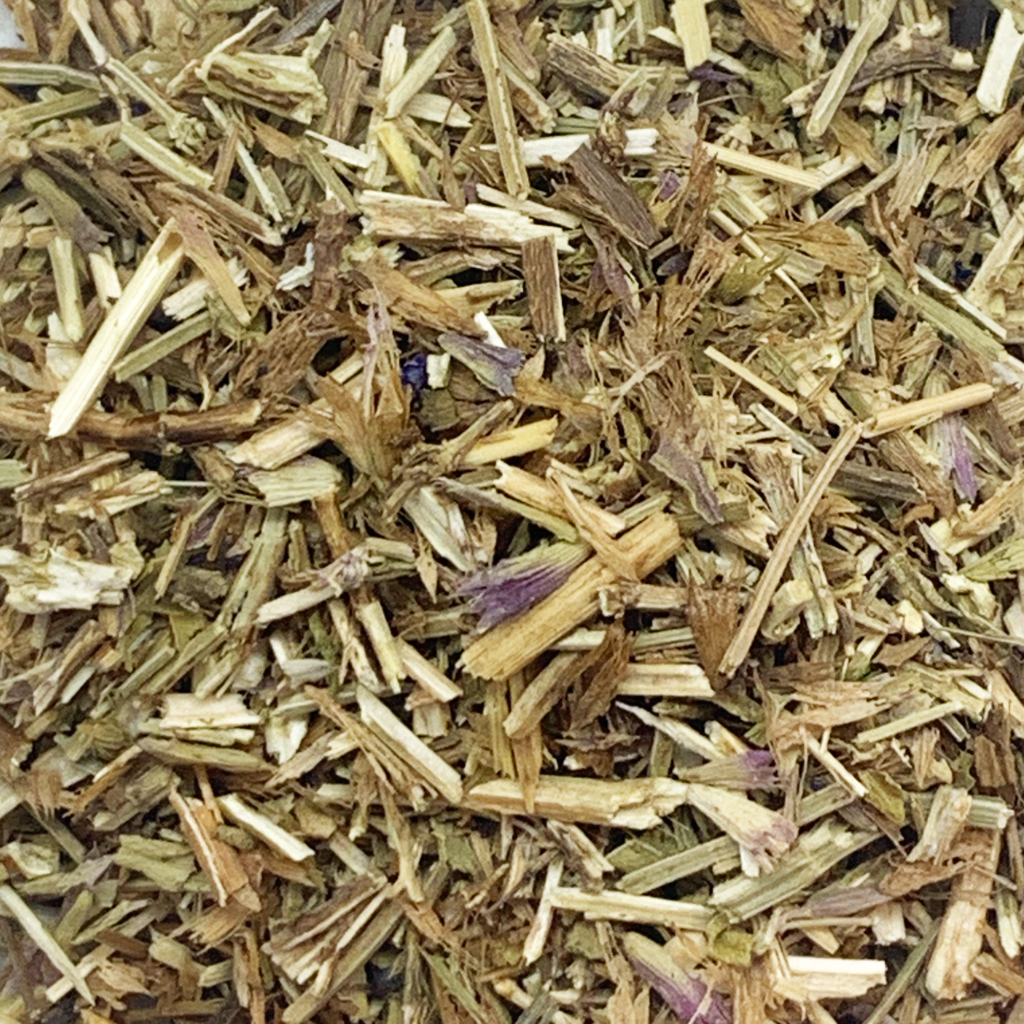
10. Ancestral Herbiary –– Ifayomi is an Onisegun, herbalist, and Iyanifa who brings traditional healing and education on herbalism to the Black community. Her goal is to not only equip us with the tools to heal the whole person emotionally, spiritually, and mentally, but to also pour into others who desire to become an herbalist. She mixes family history of rootwork, numerology, traditional herbalism, and experience from a clinical approach in her method. Ancestral Herbiary is here for the community.
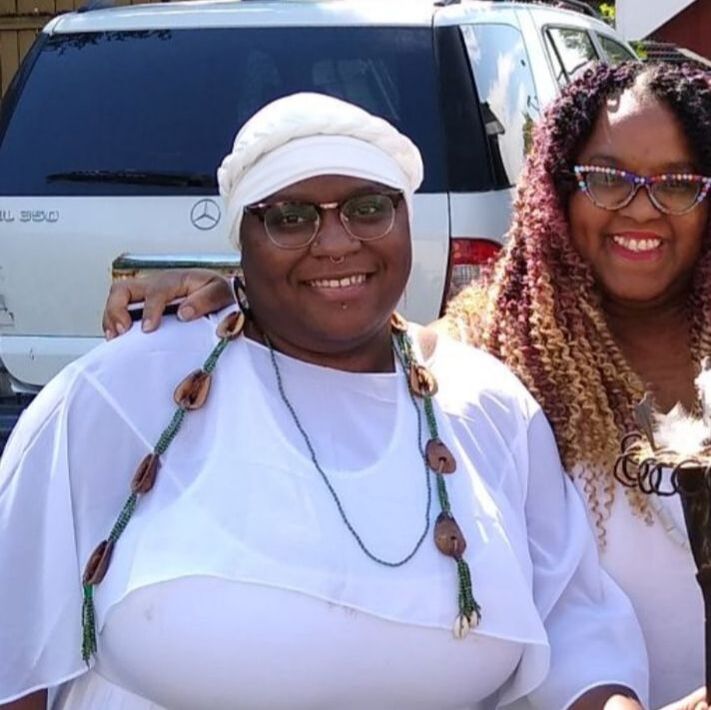
11. Hoodoo Hussy –– Hoodoo Hussy Conjure Enterprises provides spiritual care using plant medicine and African/African American traditional religious practices. We sell spiritual products such as condition oils, cleansing spray, incense and spiritual bath teas. These products can be used to improve and support your spiritual health and hygiene as well as address your very earthly ailments and life conditions.
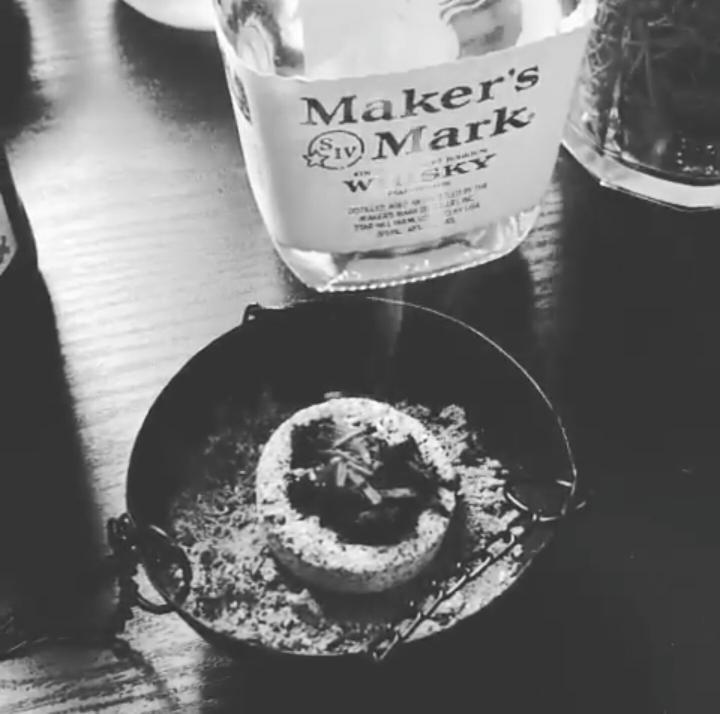
12. SaTarRa –– SaTarRa is a CONJURE WOMAN(IST)* who offers Ancestral Divinations, Personal Coaching, Divination Classes, Homemade Florida Water, Conjure Oils, & other Spiritual Necessities.
13. Elevated Conjure –– Elevated Conjure is the healing space and botanica crafted for those at the intersections of Black, Queer, and spiritual! They prioritize queer spirituality with roots in ancestral veneration, rootwork, and Hoodoo WITHOUT the church hurt. They offer education, readings, divination, rituals, and conjure supplies to bolster and foster growth along your spiritual journey. Follow them today––they have so much in store for you and your energetic health! Asé, sibling! Welcome home!
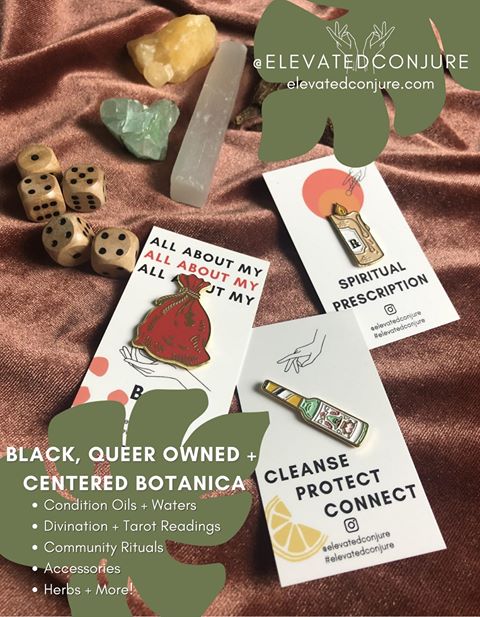
14. Juju Bae –– Juju is a spiritual advisor, medium, cunty-conjurer, hoodoo practitioner, artist, and BAE. She believes liberation is attainable with the support of our ancestors leading the way. Juju Bae is an advocate for Black (brown and indigenous) folks returning to our ancestral ways of living, thriving and being in community — through herbs, with Spirit and gathered together. Juju is the host of A Little Juju Podcast and founder of Juju Bae—your favorite internet resource for all things Black Ass Spirituality. It is in her destiny to support and love on Black people to help us all tap into our own innate powers to successfully manifest our own realities.
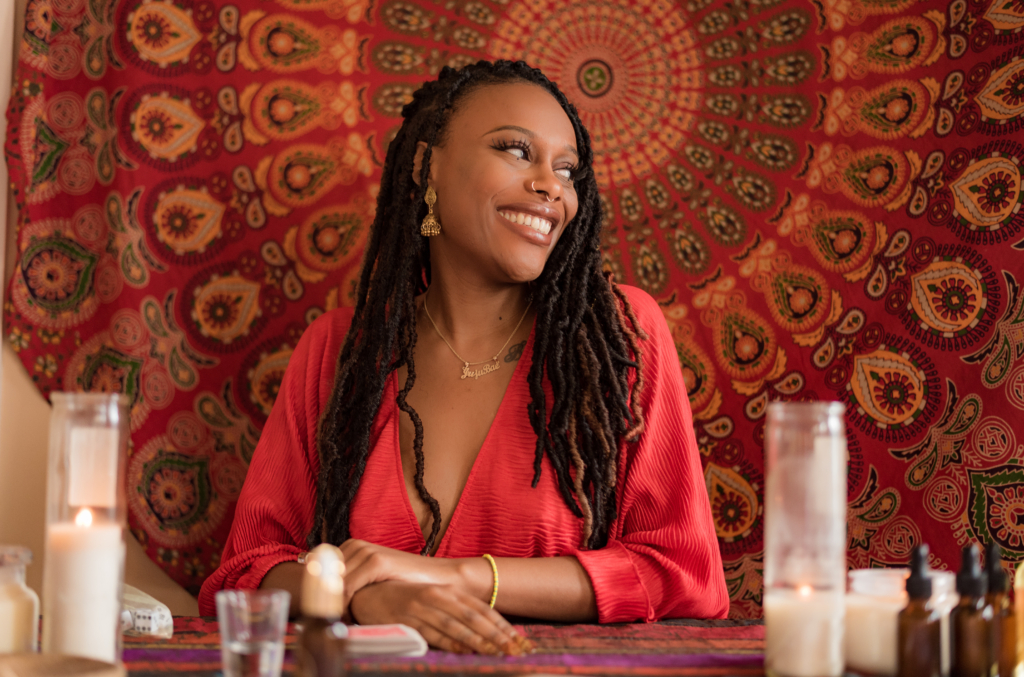
15. Mama Rue’s Head & Hand + Quoia’s Roots –– Mama Rue is an Afrikan-descended seer and diviner born of Black American and South Asian parents, and currently based in the city of Chicago, Illinois. A G.R.I.T.S. (girl raised in the South, Mississippi and Alabama), she has been involved in spirituality, magic, rootwork and divination for over thirty years. Sequoia is daughter & apprentice of Mama Rue, an intuitive reader currently working on providing tools such as condition oils to bring healing and abundance to our community. You can book her through her mother’s website or her personal Instagram page.
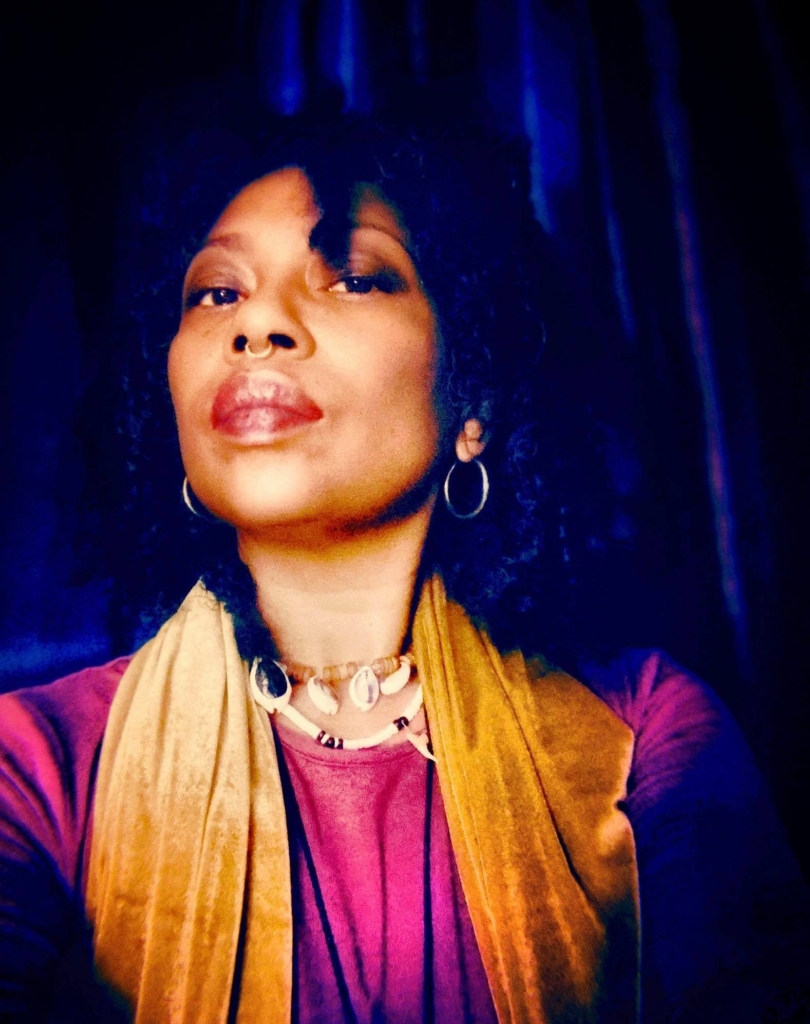
16. Southern Roots Wombman –– Southern Roots Wombman is owned and operated by Karinka, a Root Doctor specializing in laying of hands. The Southern Roots Shoppe provides items that culturally connect both the spiritual and physical in order to maintain a supreme balance with both.
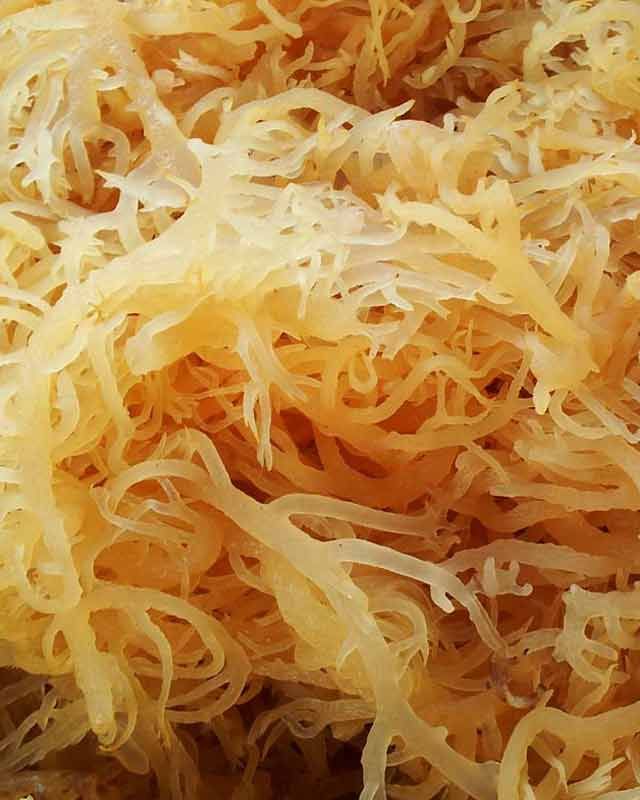
17. Ageno’s Sweet Things –– Sharifa is a Spiritualist/Medium, Priestess in the Palo Mayombe tradition, an herbalist, and a Women’s Health Advocate. She is a wife, a mother of 5 children, a teacher, and resides in Pennsylvania where she grows her own herbs/plants/flowers for making traditional/ancestral medicines.
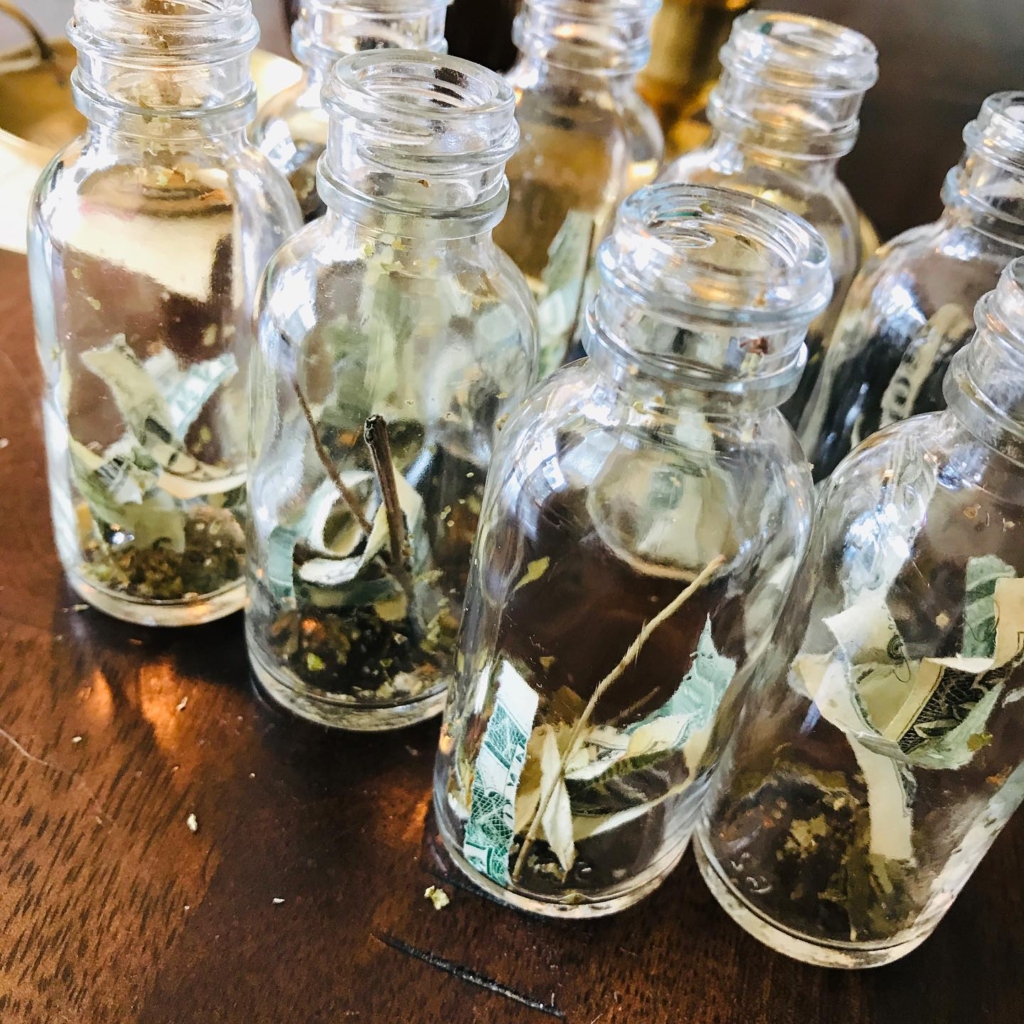
18. Cognac & Conjure –– Founded by Myesha, Two-Headed Doctor and Yayi Nkisi Malongo. Set your alarms to catch these conjure oils, which routinely sell out within an hour of re-stock as a testament to their popularity and effectiveness. Fiery Wall of Protection, O.G. Van Van, Deebo Domination and 24k Money Drawing Oils are all staples for a serious spiritual toolbox.

*A spiritualist or medium in the Hoodoo tradition, focused on traditional medicine and spirit work, ancestral connection, and art and creativity as tools for internal healing and social change through a womanist lens. See “conjure woman”.


